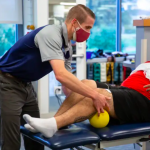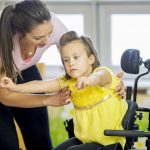Democratic lawmakers pre-filed several bills that would make voting more accessible by creating same-day voter registration and striking a line in the state constitution that limits absentee voting to Delawareans who have physical disabilities, those serving in the military or those traveling out of state. The Legislature will consider the bills when the General Assembly returns to session in January 2021.
School district data and research such as a recent analysis by McKinsey & Company suggest that school closures are causing students to lose months of learning – especially students with disabilities, students of color and students from low-income households. Analyses indicate that absence rates have increased, the number of failing grades have increased and college application rates have decreased.
In an interview, Delaware Disabilities Law Program Director Laura Waterland said that Delaware voting policies put in place for those with disabilities ensured that in-person voting was accessible. Accommodations included letting voters with disabilities move to the front of lines and wait while seated inside, adequate accessible parking spaces and allowing companions to aid at the voter’s request.
The Delaware Physical Therapy Clinic on UD’s STAR Campus, which reopened for in-person visits six months ago, has seen about 70 percent of the patient volume of a normal year – including more than 7,600 clients since the pandemic started. Clinicians and students observe safety measures including limiting physical contact, using PPE and sanitizing their hands. While the clinic also offers telehealth appointments, only three clients are currently using them.
A Government Accountability Office report on the transition to remote education found that schools struggled to provide some IEP services, notably speech, occupational and physical therapy. The report – based on observations of 15 school districts and interviews with educators, advocates, researchers and others – found that some education services had been effectively adapted for remote delivery, but challenges remained.





